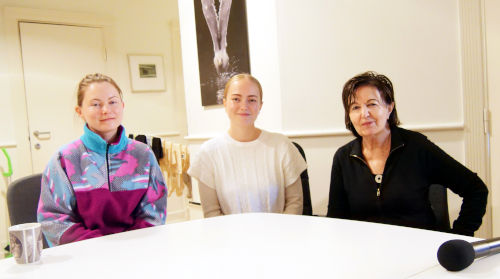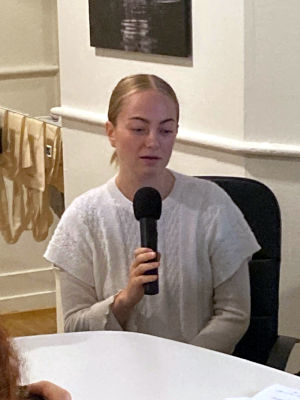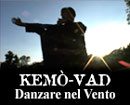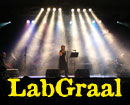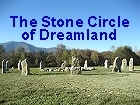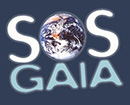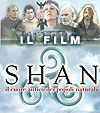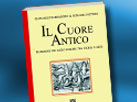| English Page |
Norway: where whaling is allowed |
 |
 |
| 28 December 2024 | ||||||||
On our recent trip to Norway we contacted Noah, Norway's largest animal rights organization. We interviewed the two Noah representatives, Maria Lien and Liv Johanne Lindsjorn.
The Animal Welfare Institute (AWI) and other animal protection and conservation organizations are calling on the Norwegian government to expand testing of all whale meat sold for human consumption and update health warnings, after new analysis revealed the presence of contaminants that can lead to a range of harmful effects and health problems. These include developmental problems, endocrine dysfunction, cancer and kidney disease. AWI, Whale and Dolphin Conservation (WDC) and NOAH, an animal rights organization based in Norway, sent eight raw, frozen samples of minke whale meat purchased online and from Norwegian grocery stores in their original packaging to a laboratory in Tromsø for independent investigation. The most significant finding was that perfluorooctane, sulfonate (PFOS) was found in all whale meat samples analyzed at levels up to 7.2 mcg/kg. Other published studies have found similar levels of PFOS in Norwegian whale meat. PFOS are part of a class of chemicals known as per- and polyfluoroalkyl substances (PFAS) that have been linked to serious health effects, including changes in immune and thyroid function, cancer, liver disease, kidney disease, dysregulation of lipids and insulin and reproductive problems. They are known as “forever chemicals” due to their persistence and tendency to bioaccumulate in animals, people and the environment. The European Safety Authority has established a tolerable weekly intake (TWI) level for PFAS in food, a standard used in Norway. While the United States has not established PFAS standards for food, in April the US Environmental Protection Agency established legally enforceable levels, called “Maximum Contaminant Levels,” for six PFAS (including PFOS) in drinking water.
At the average level of PFOS identified in the samples tested, consuming just 100 grams of whale meat per week – about the size of a deck of playing cards – would cause a human weighing 154 pounds to exceed the TWI for PFAS. This doesn't take into account other food sources of PFAS chemicals that build up in the body over time. Norway is already concerned about the impact of PFAS consumption on the population. The Norwegian Food Safety Authority has advised the public against eating fish and shellfish with levels of PFAS similar to those found in the whale meat samples tested. However, the Norwegian government does not currently provide health advice on contaminants in whale meat. Indeed, Norwegian government policy appears to encourage domestic consumption of minke whale meat, as made clear in statements from senior government officials and various government-backed marketing campaigns claiming it is healthy. Norwegian whale meat is also exported to Japan, Iceland and the Faroe Islands. “Consumers should be able to trust that their governments are providing accurate health advice on which foods to avoid or limit,” said Sue Fisher, senior policy advisor for AWI’s Marine Wildlife Program. “The Norwegian public – whose government promotes whale meat as a healthy food choice – and consumers in importing countries should be concerned about the consistently high level of permanent chemicals in Norwegian whale meat.” Following calls from Norwegian doctors and researchers for children to eat less oily fish due to high levels of PFAS and other contaminants, the research raises concerns that people who eat whale meat could be putting their health at risk. This is of particular concern for vulnerable populations, including pregnant women, children and adolescents. A recent study conducted by the Norwegian Institute for Public Health found that more than one in four Norwegian children (28.6%) had PFAS chemicals in their bodies that exceeded safe levels.
“The Norwegian Food Safety Authority should address this issue,” said Siri Martinsen, veterinarian and head of NOAH. “Although only 2% of Norwegians say they regularly eat whale meat, it is important that authorities are honest about the risks. For NOAH, respect for animals, nature and the climate are the main reasons for fighting against whaling. But we chose to take the lead in this investigation because we see that authorities define meat as “healthy,” while the facts have not been examined. It shouldn't be like this." Noah is a Norwegian organization founded in 1989. NOAH's ideology is based on the fact that animals, like humans, have the right to freedom and the expression of life in all its manifestations. The organization operates in several industries, such as industrial animal husbandry, the entertainment industry, clothing manufacturing, and hunting. We were not resigned to the idea that Norway, Iceland and Japan were the only three states where whaling is allowed. And we wanted to do something to stop this massacre. Or at least try. That's why we contacted Noah, who seemed to have principles very similar to our association, SOS Gaia. In fact, in the interview with the two representatives of Noah, Maria Lien and Liv Johanne Lindsjorn, we ascertained that the majority of the inhabitants of Norway love animals and declare themselves animal rights activists, they do not like to eat game, much less game from whaling. The Noah is obviously against whaling as well as dolphin and seal hunting, and they are campaigning to demonstrate how recent contaminant analyzes point to potential health risks to humans from consuming Norwegian whale meat. Therefore information becomes an essential topic since it can radically change people's mentality. Having established that we have the same principles and pursue the same goals, we have decided to collaborate together for a sense of justice towards animals, the true slaves of this third millennium. The interview
Rosalba Nattero: What is Noah and what is your goal?
Maria Lien: Noah is Norway’s largest animal rights organization we have over 19000 members around the country and our goal is to increase all animal rights and increase animal welfare for all animals, both wild and domestic and even fish. Rosalba Nattero: What is your main activity?
Maria Lien: We work in several different ways, but we work to change policy so we work towards politicians and government to make more animal friendly policies in Norway, but we also do outreach, we talk to people on the streets, we try to be very seen in the media, and we work with businesses as well to increase more vegetarian and vegan consumption, so we work in a lot of different ways Liv Johanne Lindsjorn: And I can just add to that we also work with a lot of volunteers and animal rights activists, from having demonstrations and stands, being on festivals and also contact politicians or stores about selling different kind of stuff that’s not good for the animals. Rosalba Nattero: Norway, Iceland and Japan allow whaling, what are you doing to stop this?
Maria Lien: We work in many different areas, but one of the main ways we work is to raise awareness that Norway is whaling because a lot of people in Norway actually don’t know about this, so we have had campaigns where we have advertisement in the biggest newspapers, showing information about how many whales Norway has killed, that pregnant whales are being killed, and so forth and also we work directly with politicians to make them suggest in the parliament. And because that’s the way we’re gonna get a ban on whaling is through the parliament at some point. And also last year we did an analysis of whale meat, too, because there’s been the whalers themselves but also politicians saying that whale meat is very healthy, so trying to push whale meat to make more people eat whale meat, but then we did a lab analysis of whale meat that we bought in stores in Norway and found that there’s actually quite a lot of environmental toxins in the meat, so that’s also a way we work to make less people buy the meat, because that’s also a way to stop the whaling if that’s not profitable for the whalers. Rosalba Nattero: that’s a good strategy!
Liv Johanne Lindsjorn: yeah, and also, we contact – we have volunteers and also ourselves – contact different stores, the biggest stores in Norway that sell whale meat, and try to get them to stop selling the meat. Rosalba Nattero: you defend just whales or any kind of animals? Maria Lien: Noah works for all animals, seals, we also work against seal hunting, we work for all the big predators, the wolves, the bears, and so forth and also animals in agriculture and family animals like dogs and cats. Liv Johanne Lindsjorn: yeah, and also fish has become bigger and bigger issue and also a bigger focus for our organization. Rosalba Nattero: a lot of things we have in common, thank you very much! |
 -->
-->
